The Future Fund is now captive to Jim’s pet projects

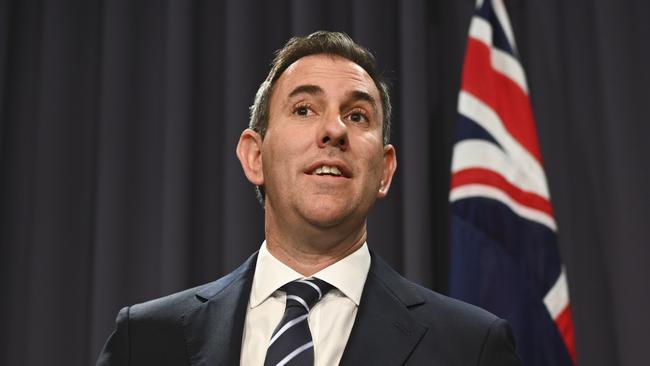
Not content with presiding over an economy that has virtually ground to a halt, with living standards falling, productivity flatlining and an inflation rate among the highest in the developed world, the Treasurer is now deepening his assault on the integrity of our key economic institutions.
He has weakened the Reserve Bank’s traditional inflation-fighting focus and directed the Productivity Commission to focus more on green ideology. And he has now turned his attention to the $230bn Future Fund, which was set up by former treasurer Peter Costello to meet the federal government’s mammoth, unfunded public sector superannuation liabilities.
As we know, Chalmers and Finance Minister Katy Gallagher have announced that the Future Fund’s mandate will be changed to require it to consider “national priorities” when making its investment decisions. If you think that sounds ominous, you are right.
This is a marked change to the Fund’s initial riding instructions, which focused on obtaining the best available commercial return and did not privilege particular sectors. Chalmers’ pet priorities are to increase the supply of residential housing, support the net-zero energy transition and fund local infrastructure projects to improve economic resilience and security. He insists this will not compromise the Future Fund’s focus on maximising commercial returns.
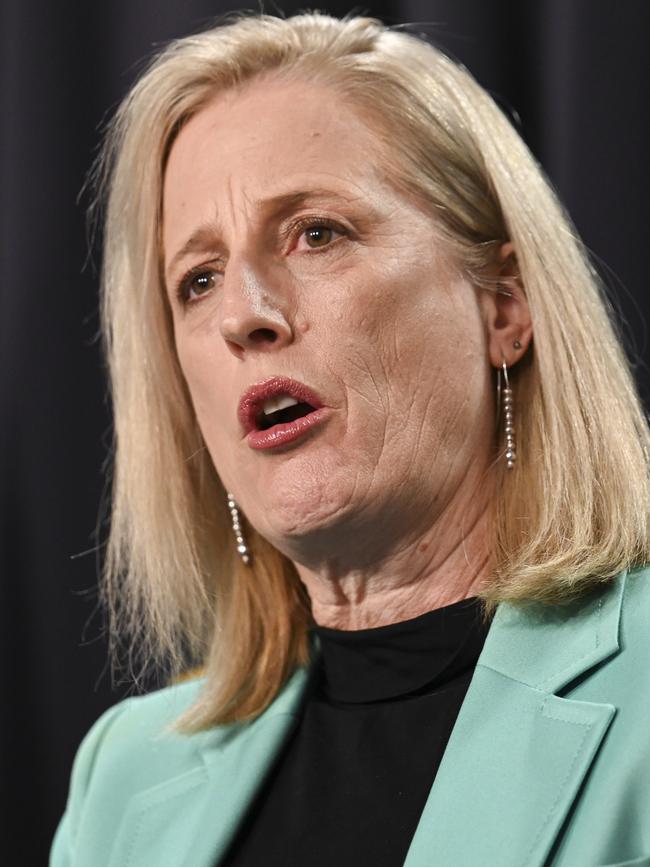
Yet we have just witnessed the re-election of Donald Trump, who campaigned strongly against net-zero climate austerity and will pull that country – the world’s largest economy, let’s remember – out of the Paris Agreement. It’s dead.
Let’s not also forget the Albanese government has bet the house on wind and solar to get us to net zero: energy sources that apart from being inherently unreliable and expensive, require massive subsidies from the taxpayer to be commercially viable.
Residential housing, meanwhile, is a sector tied in state and local government red tape, with the threat of investment-killing capital gains and negative gearing tax hikes looming over it – from none other than Chalmers himself.
And in the area of infrastructure, the reference to “economic reliance and security” is well-known code for projects that do not stack up on commercial grounds.
If a David Murray or a Peter Costello-like figure were chairing the Fund, perhaps its commercial integrity could, despite Chalmers’ political directives, be salvaged. But Greg Combet, a career unionist, ultimate Labor insider and climate utopian, is at the helm.
If his appointment was a blow to the Fund’s credibility, Chalmers’ latest fiddling will do further damage. No longer will the Fund be seen by counterparties as a first-rate, commercially focused operation. Every investment decision it makes, even if perfectly justified, will be second-guessed by the market. It will have a political shadow hanging over it.
And now that it’s integrity has been breached, we can look forward to further Labor hobbyhorses to be added to the Fund’s investment wish list.
Why not the care economy or local manufacturing? Why not union-favoured construction projects? Every industry association in the country will be knocking on Chalmers’ door to get their sector a mention. His naivety is staggering.
The Fund decision, while deeply flawed, is not at all surprising for this Treasurer to make.
It reflects his basic misunderstanding of the nature of capitalism. When he invokes this term, he has in mind politicians directing private capital into favoured projects, not markets allocating resources to their highest-value uses, as directed by millions of consumers’ price signals.
Adam Smith first articulated the miracle and genius of the latter, which protected individual freedoms while achieving both social cohesion and growing prosperity – and all without a central directing political Leviathan.
A succession of leaders of failed, interventionist states has demonstrated the economic folly of the former. Crony capitalism is not progressive or enlightened or sophisticated, as Chalmers believes, but the oldest governance cancer there is.
At a deeper level, Chalmers’ Future Fund gambit is evidence of his inability to face the reality of trade-offs, which – when you think about it – is a basic requirement for competent economic leaders.
If you insist on equality of outcomes, you cannot have equality of opportunity. If you insist on running an economy with an overheated labour market, such as ours, you cannot have stable prices. And if you mandate expensive wind and solar power, you cannot lower power prices.
Those who tell the public they can have their cake and eat it are either dishonest or blind ideologues, whether of the left or the right. They may succeed in this deception for a while, but the public soon find them out. If Chalmers was betting his own money on his pet sectors, he would at least pay the price if they failed.
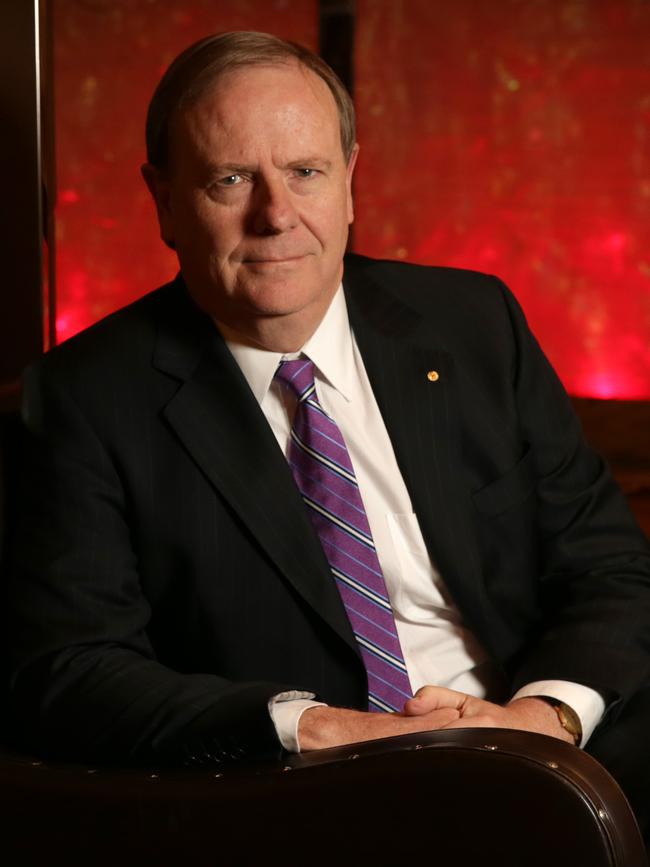
If the Future Fund fails, it is not only taxpayers that will suffer, but every person in Australia who depends on the government safety net – whether the Age Pension, the NDIS, aged-care support, unemployment benefits or the Pharmaceutical Benefits Scheme.
The Future Fund is an insurance policy for these millions of Australians. A financial resource that, if managed wisely and prudently, could fund the coming tsunami of public sector superannuation liabilities with no need to made calls on our annual budget – with no need to cut into their entitlements.
Without the Fund or something like it in place, these liabilities will have to be funded by higher taxes, lower welfare payments or higher debt, pushing the cost on to future generations.
This is the position that Greece found itself in after the global financial crisis. We are not close to that country’s predicament, but Chalmers’ weakening of the Future Fund is a small step in that direction.
When Labor has taken the economic high ground and looked out for working Australians, it has always enjoyed political success. When it has surrendered to ideology and forgotten its traditional base, it has suffered.
A good Labor treasurer should be the economic conscience of the government they serve. A Chris Minns or Peter Malinauskas, if in Canberra, might fit the bill.
Jim Chalmers, for all his boasting and ambition, is not that man.
David Pearl is a former Treasury assistant secretary.
More Coverage
 And he has now turned his attention to the $230bn Future Fund, which was set up by former treasurer Peter Costello to meet the federal government’s mammoth, unfunded public sector superannuation liabilities
And he has now turned his attention to the $230bn Future Fund, which was set up by former treasurer Peter Costello to meet the federal government’s mammoth, unfunded public sector superannuation liabilities
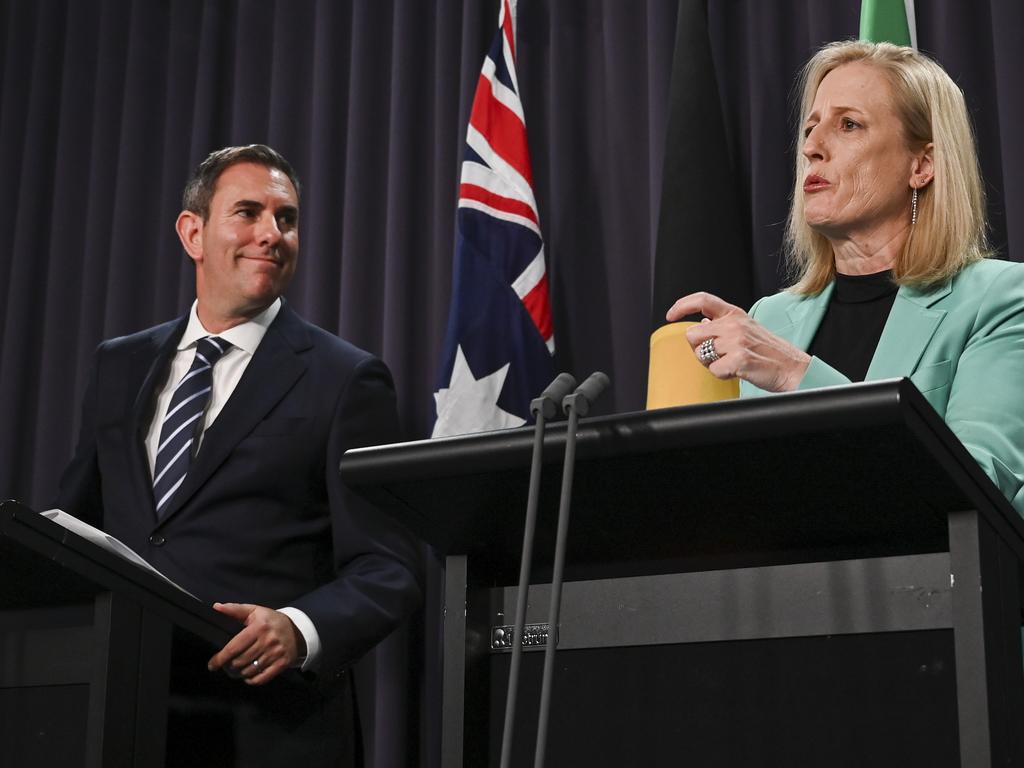
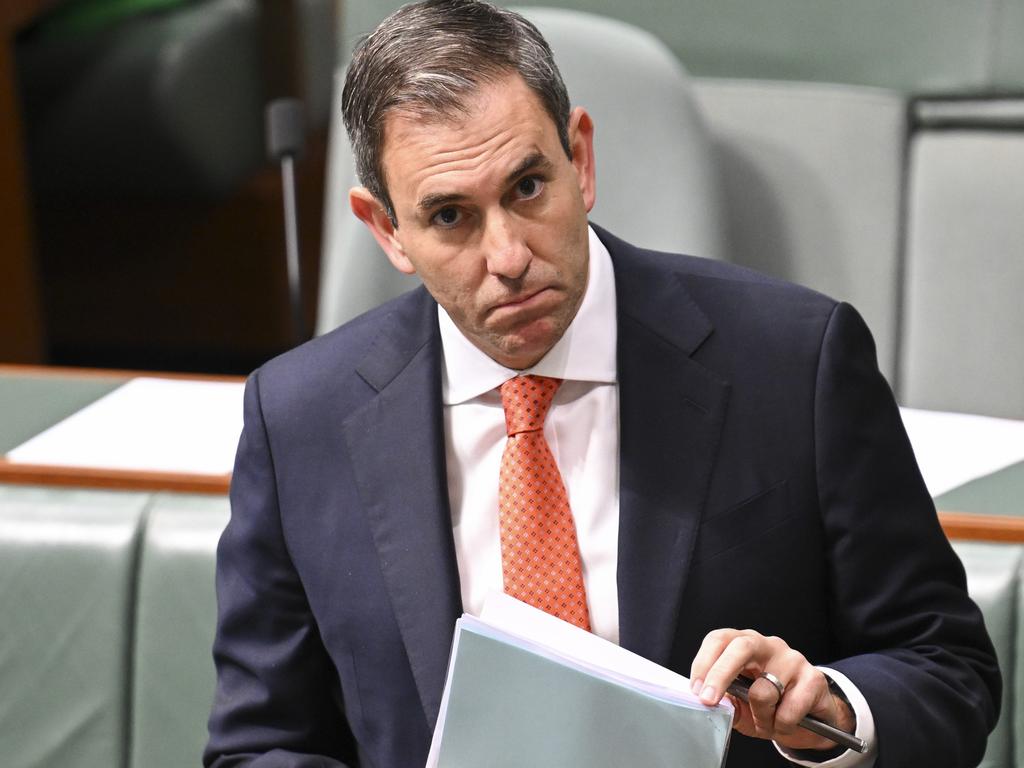


As if any further confirmation was required, Jim Chalmers has now proved beyond a shadow of a doubt that he’s a serious liability for the Albanese government.